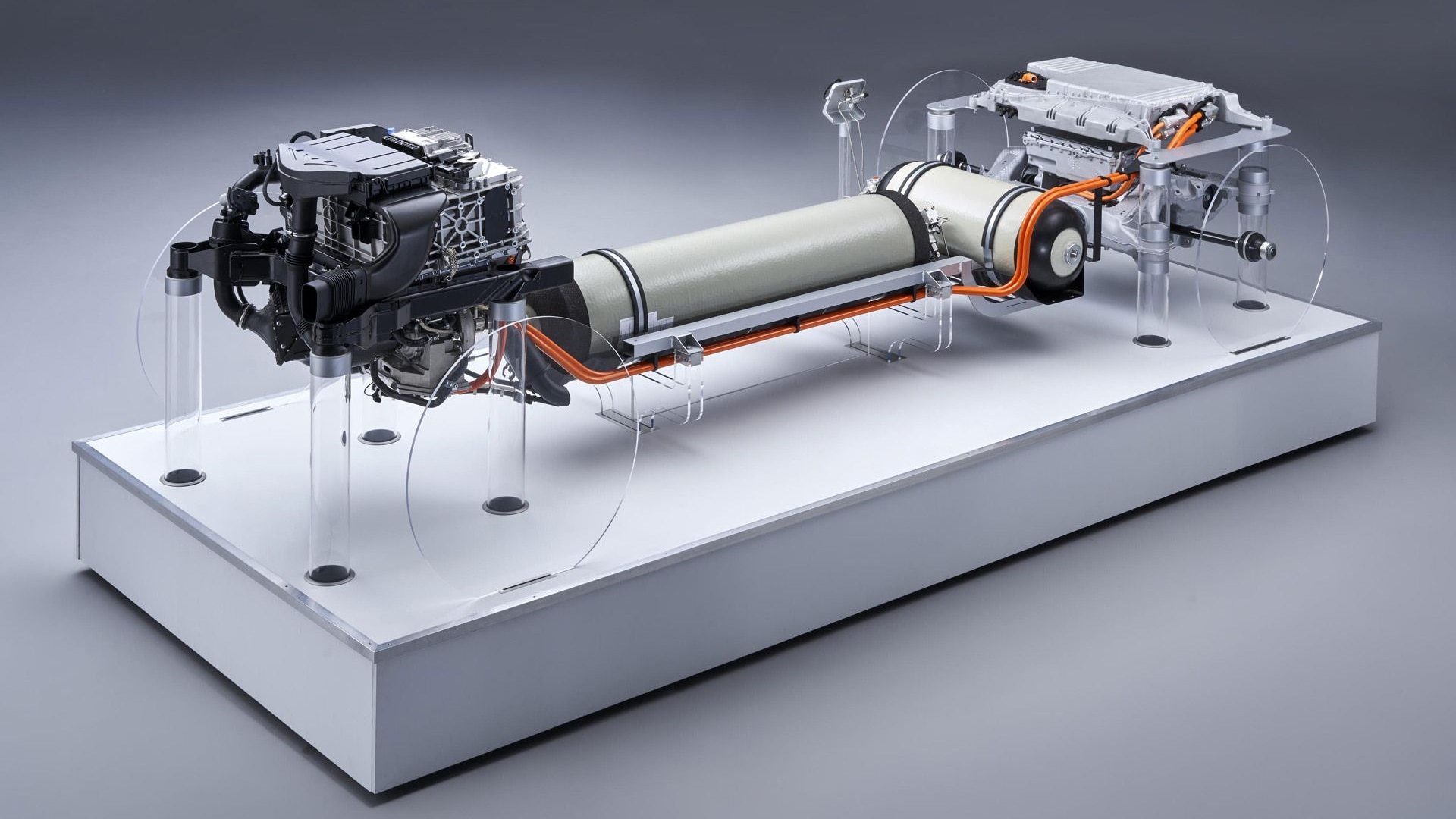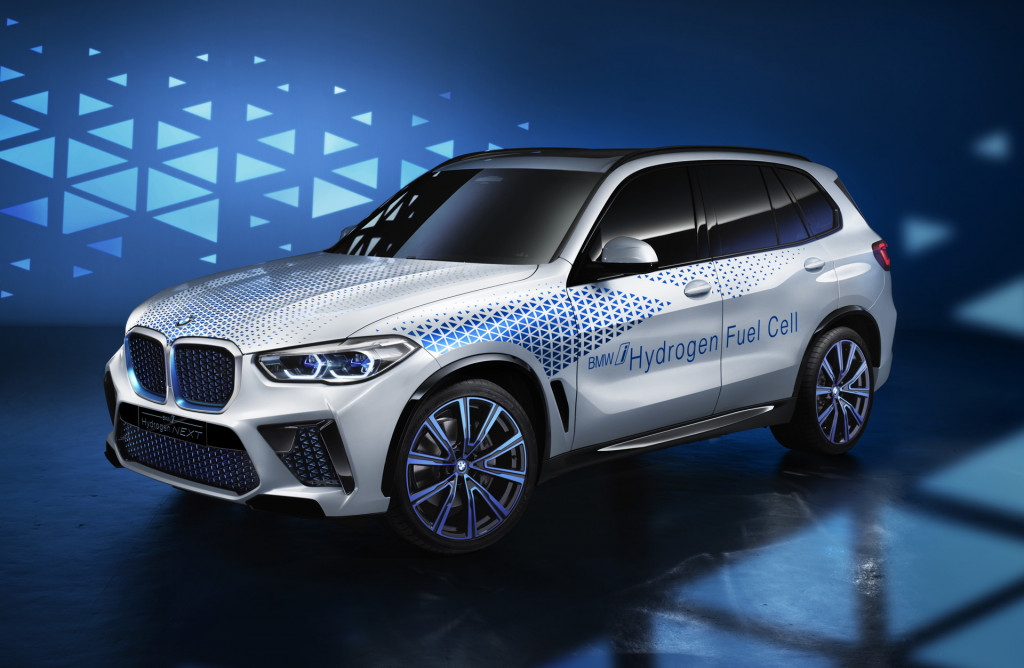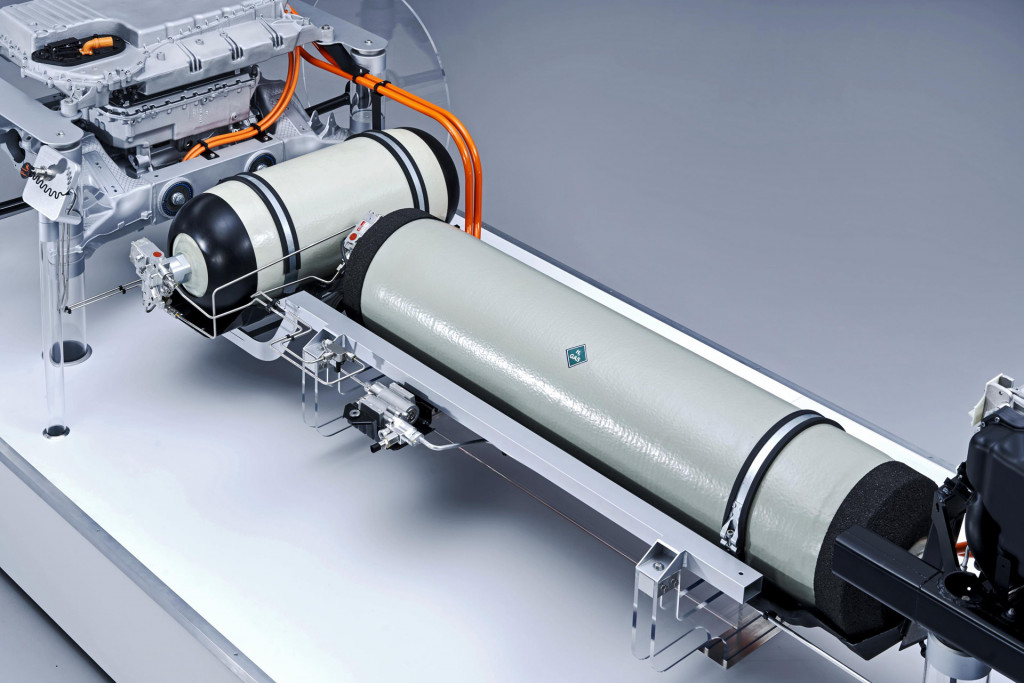
BMW plans to put a hydrogen-electric vehicle into limited
production in 2022, which the automaker previewed last September with the X5-based
i Hydrogen Next concept.
On Monday, BMW provided the first details on the powertrain
that will feature in the production version of the i Hydrogen Next, which will
also be X5-based.
A hydrogen-electric vehicle is essentially an EV where
instead of a battery, the electric motor is powered primarily by a hydrogen
fuel cell stack.
In the case of BMW's upcoming hydrogen-electric X5, the fuel
cell will sit up front and draw hydrogen from two tanks, one in the X5's
transmission tunnel and the other under the rear seat. The fuel cell will
combine hydrogen with oxygen from the air to create electricity which will
directly power an electric motor at the rear axle.
Electricity from the fuel cell will also charge a small
battery that will also power the motor during high-load situations. Total
system output in this case will be 368 horsepower. The fuel cell on its own
generates about 167 hp.
As mentioned, the hydrogen-electric X5 will be built in
limited numbers. BMW doesn't plan to sell it to private customers, though. The
automaker doesn't expect to have any hydrogen-electric vehicles at its dealers
until 2025, at the earliest. The date could be even later depending on the
direction the market takes, BMW said.
BMW is working closely with Toyota to develop future
hydrogen-electric powertrains. The automaker is still focused primarily on
battery-electric vehicles, though. In fact, it will have more than a dozen
battery-electric vehicles on sale by the end of 2023.
The reason for the hydrogen-electric X5 is so the automaker
can supply customers with their powertrain of choice in the future, whether it
be gasoline, diesel, battery or hydrogen. In the case of hydrogen, BMW sees it
as an opportunity for customers that favor long-distance driving.
“We are convinced that various alternative powertrain
systems will exist alongside one another in future, as there is no single
solution that addresses the full spectrum of customers’ mobility requirements
worldwide,” said Klaus Froehlich, head of R&D at BMW. “The hydrogen fuel
cell technology could quite feasibly become the fourth pillar of our powertrain
portfolio in the long term.”
by Viknesh Vijayenthiran
http://www.boscheuropean.com


No comments:
Post a Comment